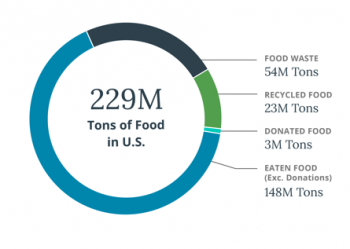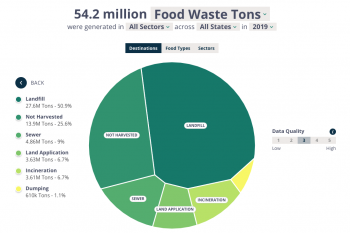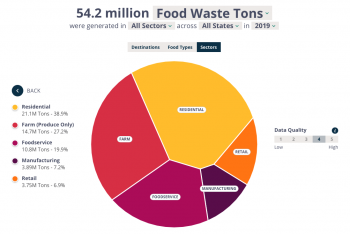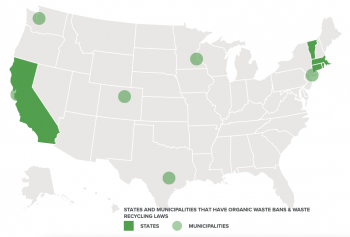The Food Waste Challenge
Food waste is THE new topic you will hear about!
In 2019, out of 229M tons of food produced in the U.S., an estimated 24% – or 54M tons – went to waste.
50% of food waste ends up in a landfill, representing about 1/4 of all waste going to landfills.
In order to push businesses and consumers to minimize food waste, a growing number of states and localities are legislating food waste bans or waste recycling laws to limit the amount of food waste a business can send to the landfill. As of January 2021, five states and several localities have passed waste bans or waste recycling laws for food waste. Four states—Connecticut ( Public Act 11-217 ), Massachusetts ( 310 CMR 19.000 ), Rhode Island ( RI General Law § 23-18.9 ), and Vermont ( Universal Recycling Law – Act 148 )—structure their laws as organic waste bans, while one state, California, has instituted a waste recycling law ( AB 1826 ) requiring commercial generators of organic waste to either compost or anaerobically digest organic waste. Each of these states prohibits certain entities that generate specified amounts of food waste from sending it to landfills. The municipal laws that exist function similarly to the laws of these states.
However, each state differs regarding the specifics of its waste ban or recycling law. For instance, they vary with regard to the types of entities covered under the law, the amount of organic waste an entity must produce in order to be covered, and whether exceptions exist for entities located far from a facility that accepts food scraps. As of 2020, Vermont’s law will cover anyone, including residents, who generates any amount of food waste. In contrast, other states cover only certain commercial, industrial, and institutional entities.
Businesses will gradually be forced to implement food waste recycling programs, adding an additional costly expense to their operations.
To help you minimize the cost, navigate the different policies and stay compliant with your local food waste regulations, please contact Waste Metrics at (844) 773-7554 or fill out this online form for free compliance assistance.

(Source: ReFED)

(Source: ReFED)

(Source: ReFED)

(Source: ReFED)
The post The Food Waste Challenge appeared first on Waste Metrics Consulting | San Diego | CA.
